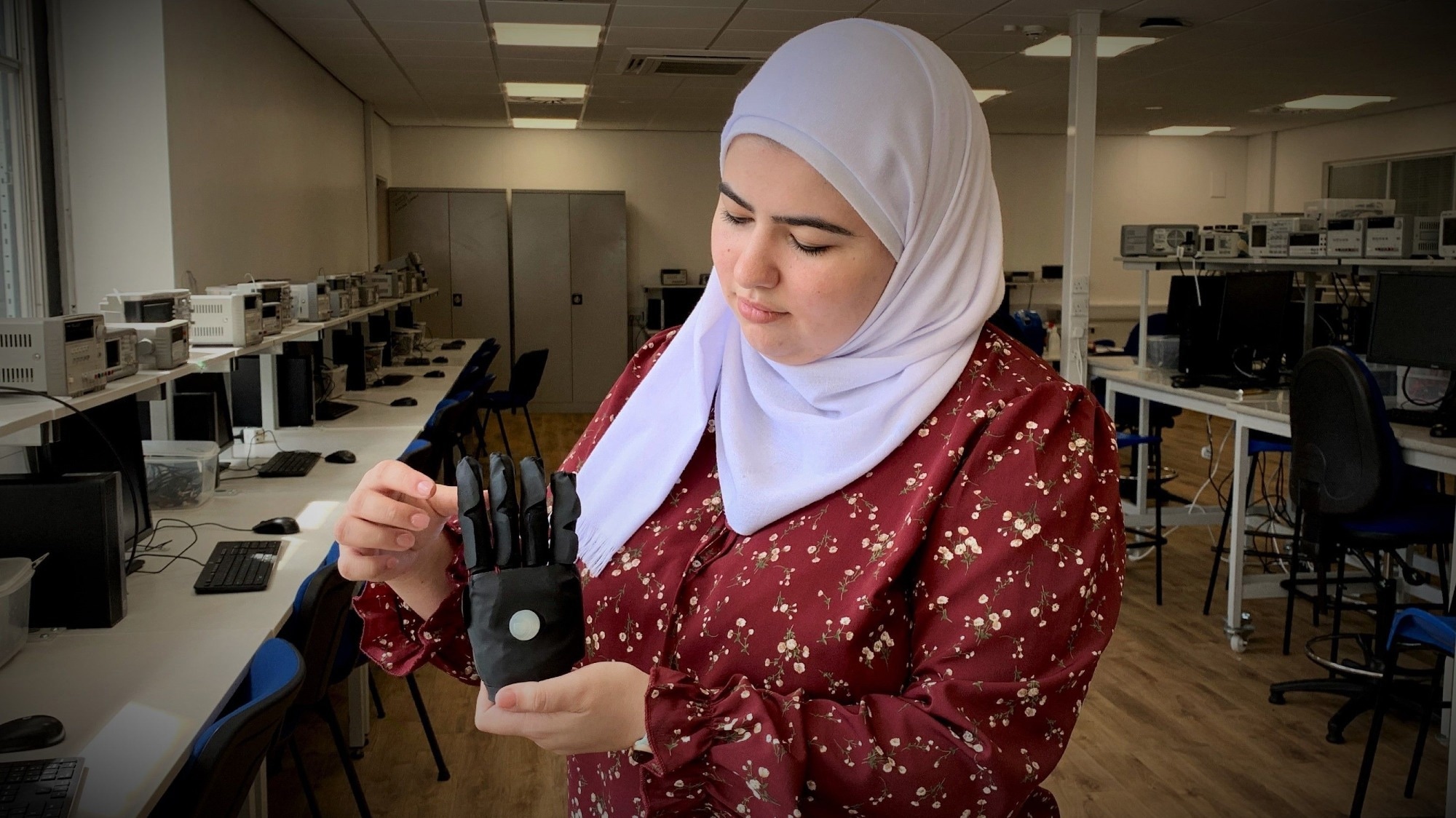A glove and armband that gives people with upper limb prosthetics a sense of touch through haptic feedback is in development at the University of Bath, with unique at-home trials set to begin in the coming weeks.

Image Credit: University of Bath
Engineers at the University are working with Open Bionics, a Bristol company that created the world’s first medically approved 3D printed bionic arm, to improve the experience for people who use prosthetic arms.
The project aims to reduce the likelihood of users abandoning prosthetics by involving them in the design process to create a wearable device that meets their needs by providing touch-like feedback through vibrations. Participants will test the device at home, rather than in the lab, and updates will be made via the internet in direct response to their feedback, giving them the opportunity to customize their device.
The prototype device comprises a vibrotactile feedback kit, which participants in the trials will test out during their normal day-to-day activities. The glove and armband include force sensors and vibration effectors, as well as a smartwatch-like microcontroller which allows users to modify the feedback settings through a mobile app.
The app gives users the ability to adjust the intensity and type of vibrations, as well as which sensors are used to activate them. The microcontroller also connects the kit to the internet to enable the recording of relevant data and updating the firmware based on input from the participants.
The device is being developed following an earlier study which found that people with upper limb differences desire reliable sensory feedback technology that extends beyond simple fingertip sensors, with input from several areas of the hand and arm. Study participants highlighted that despite knowing that feedback would be useful, they needed to try it to know how it would fit into their lives and, thus, how they need it to be designed.
The prototype vibrotactile device comprises sensors that attach to a prosthetic arm and an armband that can be worn on the residual limb. The device is scheduled to undergo testing beginning this month.
Postgraduate researcher Leen Jabban, who is leading the project, says: “Upper limb prostheses often fail to meet the user’s expectations and needs, with up to 75% of users abandoning their prosthesis. When they rely on alternative ways to carry out tasks, this can involve compensatory movements that could lead to pain.
“Our previous surveys and interviews have shown that sensory feedback, or the ability to sense how that prosthesis is engaging with objects, is a highly desired feature. This is what we aim to develop.”
The work is one of two projects at the University of Bath that have been funded by the Engineering and Physical Sciences Research Council through TIDAL Network Plus - Transformative Innovation in the Delivery of Assisted Living Products and Services. Early prototypes of the device were developed with funding from the University of Bath Alumni Fund.
People interested in taking part in the trials are invited to contact the team at https://bathreg.onlinesurveys.ac.uk/sensory-feedback-iot.
Our overarching goal is to transform the way that assistive technology is designed by using technology to enable at-home co-creation. Using the Internet of Things, whereby the technology is connected to the internet, means that both the users and the research team can get a more representative view of how the technology is being used within the home. All stakeholders can view real-time feedback and implement rapid changes to the technology that opens up the scope to co-create and make our research more user-focused, helpful and impactful.”
Dr Benjamin Metcalfe, Deputy Director, Bath Institute for the Augmented Human
A Person Based Approach to the Development of Upper Limb Prostheses, Dr Benjamin Metcalfe.
A person based approach to the development of upper limb prostheses, Dr Benjamin Metcalfe. Video Credit: University of Bath